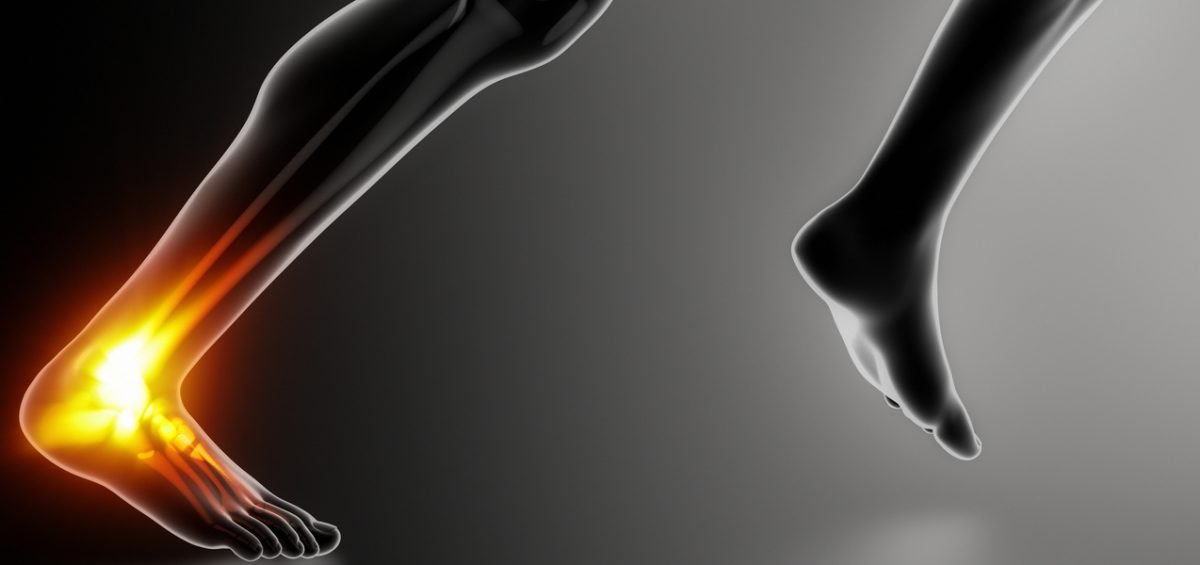
Achilles Tendonitis
We Treat
Ever wondered what Achilles Tendonitis is, what causes it or how to treat it?
Achilles Tendonitis is a common injury for runners, but it can also be found in many other sports, such as basketball, tennis, dancing or pretty much anything that involves repetitive stress on the feet.

Common Causes Of Achilles Tendonitis
Achilles Tendonitis is known as an overuse injury, due to a repetitive action on the foot such as jumping or running. It can affect anyone, regardless of age, and is determined by how much you use your feet during day to day life. The common causes of Achilles Tendonitis include;
- Not warming up properly before exercise.
- Playing sports that include sudden stops. (E.G. Tennis)
- Poorly fitting shoes with inadequate arch support.
- Weakened Achilles Tendon with age.
- Wearing high heels consistently for a prolonged duration.
- Hill running.
- Poor eccentric strength (How well a muscle lengthens or contacts).
It’s important to be mindful that some of these common causes are easily preventable. Remember, any form of repetitive action witll put strain on your Achilles Tendon.
Common Symptoms Of Achilles Tendonitis
The main symptom associated with Achilles Tendonitis is swelling and pain in the back of the heel when walking or running. When trying to diagnose Achilles Tendonitis, it is best to consult a professional practitioner. At Northern Spinal Clinic, our practitioners ensure you get a correct and accurate assessment.
For now, let’s take a look at some of the most common symptoms of Achilles tendonitis;
- Achilles Tendonitis usually causes stiffness, pain and loss of strength in the affected area.
- The area of pain may be red, swollen, warm or tender.
- The pain may worsen, as you repetitively use the Achilles tendon.
- There may be more pain in the affected area during the night or when waking up in the morning.
- Feeling friction when doing exercises that use the Achilles Tendon
- Limited range of motion when flexing your foot.
If you are experiencing any or all of these symptoms, please don’t hesitate to get in touch with one of our friendly professionals at Northern Spinal Clinic.
Diagnosing Achilles Tendonitis
When diagnosing Achilles Tendonitis, our practitioners at Northern Spinal will ask questions about the severity of the pain or swelling you are experiencing. Our team will also conduct tests on flexibility and range of motion to give you the best assessment.
If necessary, Northern Spinal also offers advanced imaging tests, such as:
- Ultrasounds, in order to show tendon movement related damage and inflammation.
- MRI scans which detect ruptures and the degeneration of tissue.
- X-rays can provide images of the bones in the leg and foot.
How To Treat Achilles Tendonitis
There are many ways to treat Achilles Tendonitis; these range from common home remedies to more invasive treatments, such as surgery.
If suffering from Achilles Tendonitis, you should:
- Limit physical activity.
- Rest
- Stretch the calf muscles and affected area.
- Apply ice to the affected area after exercise or when you experience pain.
- Elevation the foot and affected area.
- Anti-inflammatory medicine.
- Physiotherapy
- Use tape or wear a brace or walking boot to prevent the overextension of the heel.
- Surgery
The RICE Method is one of the most effective ways to treat Achilles Tendonitis pain at home, but again, this is just a temporary fix to a longer lasting problem.
RICE Method
Rest:
Do not put pressure or weight on the affected area and take a break from any sports activities you are currently doing. The use of crutches can take weight off your ankle and make the tendon heal faster if no strain is applied.
Ice:
Use an ice pack and apply it to the affected area for 15-20 minutes.
Compression:
Use tape or a bandage around your tendon to compress the affected area, but be careful not to wrap the area too tight, as this may restrict blood flow.
Elevation:
To keep the swelling down, the elevation of the foot above your chest will let blood flow back to the heart allowing the swelling to slow down.
If common treatments are not successful, then surgery may be required to repair the damaged Achilles Tendon. It’s important to find the right treatment, otherwise an Achilles rupture can occur when the Achilles is left untreated or the current condition worsens.
If you think you may be suffering from Achilles Tendonitis, then don’t hesitate to contact our team of allied health professionals including Osteopaths, Chiropractors, Physiotherapists & Podiatrists. We’re conveniently located in Reservoir. You can give us a call for more information about Achilles Tendonitis on 03 9470 1010 and follow our social media to learn more about common sports injuries.





